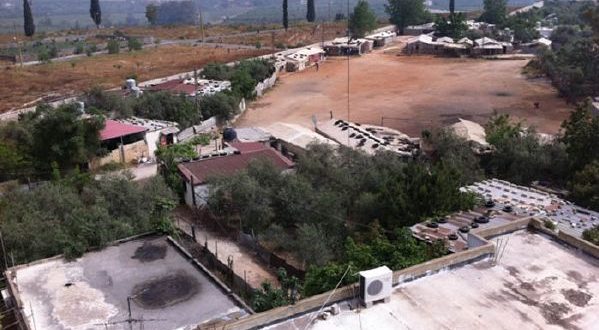The media often reports on what it would describe as “the Palestinian cause,” “the suffering of the Palestinian people” and “the breach of Palestinian rights.” Yet often stories come to light, which challenge this categorization. In reality, media attention is not focused on the suffering of the Palestinians, but on the supposed evil of the Israelis.
Last week it was announced that fifty Palestinian houses were going to be demolished in order to construct a road connecting two cities, so they evicted the fifty Palestinian families living in their homes.
The media however, did not report on this story, and few if any human rights organizations protested. The reason? Because these Palestinians live in Lebanon, not the West Bank, and it was the Lebanese government and not the Israeli government evicting them. Radio silence.

Why is there no comment when Palestinians are mistreated by the Lebanese government? Were Israel to announce the demolition of Palestinian homes, a smorgasbord of condemnations from international bodies, human rights groups, and world leaders would be heard, making international headlines.
There are also crucial differences between Lebanese and Israeli evictions which make the recent Lebanese announcement far more serious. Home demolitions by the Israeli government occur for one of two reasons: Firstly, homes, both Jewish and Palestinian, that are built without planning permission in Area C and East Jerusalem are often demolished, although sometimes, both Jewish and Palestinian homes are retroactively legalized.
Secondly, homes are often destroyed for security related reasons. For example, if a Palestinian home is being used for terrorist activity, or belongs to a terrorist (in which case it is destroyed as a deterrent not to commit attacks). Israel’s deterrent policy has been debated domestically and around the world, but without a doubt, demolitions in Area C of the West Bank and East Jerusalem for security purposes have a more reasonable basis than the desire to build a road. Yet when the Lebanese government destroys Palestinian homes for no reason other than ease of transportation, it barely causes a ripple of media or NGO attention.

Again and again, the phenomenon of ignoring Palestinian grievances when Israel is not involved is evident. A few months ago, the Lebanese government announced it was building a security wall around a Palestinian refugee camp near Sidon (This is one of the Palestinian refugee camps outside of Israel; there are camps in Jordan, Syria and Lebanon). Yet there was no international outcry. When Israel built a security barrier (that included sections of wall) in parts of the West Bank, the world was sure to publicly condemn Israel. Egypt has also evicted Palestinians to build a security wall along its border with Gaza; but once again, did not face an international barrage of criticism. Beyond these instances, there are far more serious issues of double standards when it comes to media attention on Palestinians living in the West Bank versus elsewhere – Palestinian refugees in Lebanon face genuine apartheid. They are banned from working in twenty professions and are forbidden from attending public schools or owning property.
If the media genuinely wants to bring light to the condition of the Palestinian people, then it should focus on perceived wrongs perpetrated against Palestinians, regardless of who the perpetrator is. If, on the other hand, the media only reports what it perceives to be Israeli crimes against the Palestinians – then it can be said to have ceased being pro-Palestinian, and has become simply anti-Israeli.
Contributed by CAMERA staff.

